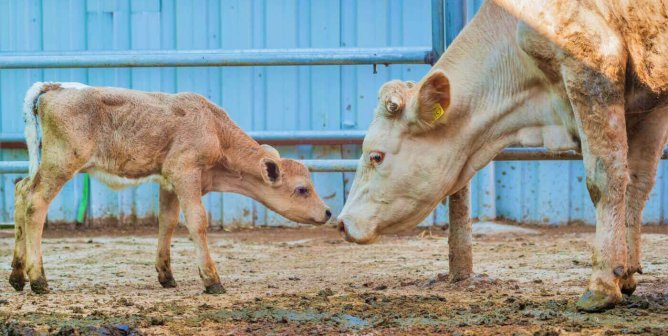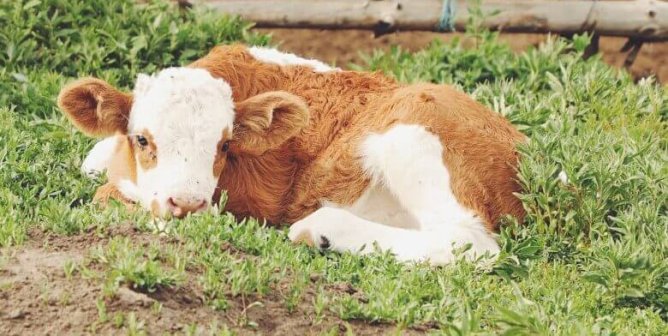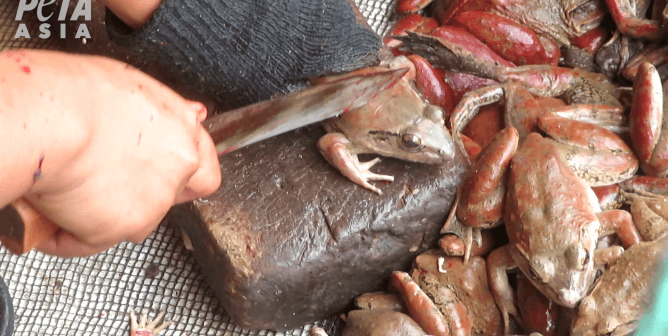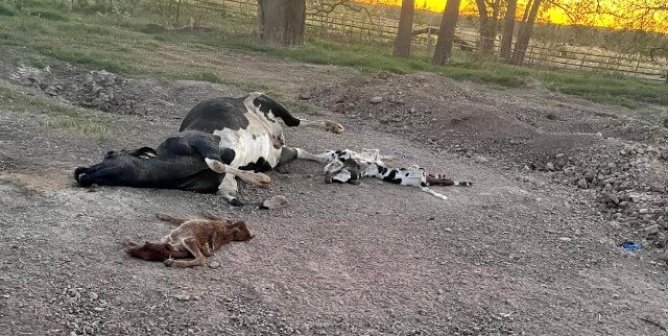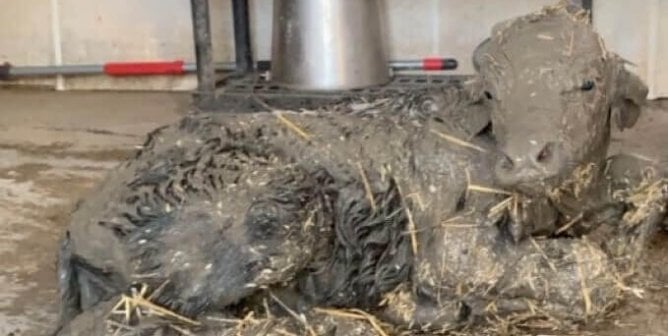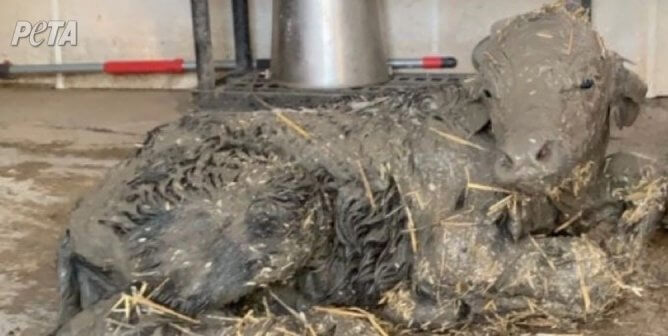Meat and the Environment
Raising animals for food requires massive amounts of land, food, energy, and water and causes immense animal suffering.
The Climate Crisis
By some estimates, animal agriculture is responsible for more greenhouse gases than all of the world’s transportation systems combined. According to the United Nations, a global shift toward a vegan diet is vital to combat the worst effects of the climate crisis.
Water Use
It takes an enormous amount of water to grow crops for animals to eat, clean filthy factory farms, and give animals water to drink. A single cow used for milk can drink up to 50 gallons of water per day—or twice that amount in hot weather—and it takes 683 gallons of water to produce just 1 gallon of milk. It takes more than 2,400 gallons of water to produce 1 pound of beef, while producing 1 pound of tofu only requires 244 gallons of water. By going vegan, one person can save approximately 219,000 gallons of water a year.
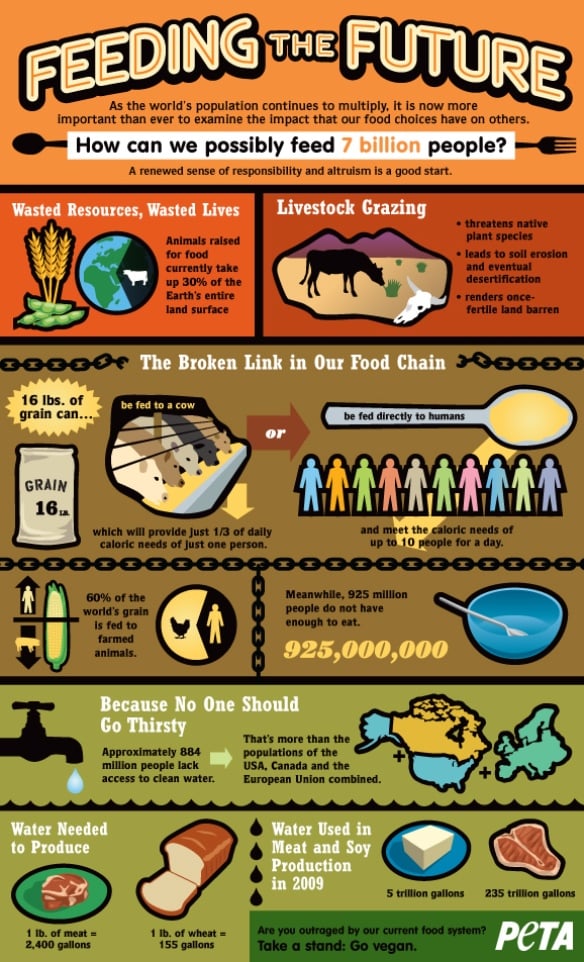
Pollution
Animals raised for food in the U.S. produce many times more excrement than does the entire human population of the country. According to the U.S. Environmental Protection Agency (EPA), animals on U.S. factory farms produce about 500 million tons of manure each year. With no animal sewage processing plants, it is most often stored in waste “lagoons” (which can be seen in aerial views of factory farms) or it gets sprayed over fields.
Runoff from factory farms and livestock grazing is one of the leading causes of pollution in our rivers and lakes. The EPA notes that bacteria and viruses can be carried by the runoff and that groundwater can be contaminated.
Factory farms frequently dodge water pollution limits by spraying liquid manure into the air, creating mists that are carried away by the wind. People who live nearby are forced to inhale the toxins and pathogens from the sprayed manure. A report by the California State Senate noted, “Studies have shown that [animal waste] lagoons emit toxic airborne chemicals that can cause inflammatory, immune, irritation and neurochemical problems in humans.”
Land Use
Using land to grow crops for animals is vastly inefficient. It takes 75% less land to feed someone on a plant-based (vegan) diet than it does to feed a meat-eater since the crops are consumed directly instead of being used to feed animals. According to the U.N. Convention to Combat Desertification, it takes up to 10 pounds of grain to produce just 1 pound of meat, and in the United States alone, 56 million acres of land are used to grow feed for animals, while only 4 million acres are producing plants for humans to eat.
More than 90 percent of all Amazon rainforest land cleared since 1970 is used for grazing livestock. In addition, one of the main crops grown in the rainforest is soybeans used for animal feed. (The soybeans used in most veggie burger, tofu, and soy milk products sold in the United States are grown right here in the U.S.)
Oceans
While factory farms are ruining our land, commercial fishing methods such as bottom trawling and long-lining often clear the ocean floor of all life and destroy coral reefs. They also kill thousands of dolphins, sea turtles, sharks, and other “bycatch” animals. Coastal fish farms release feces, antibiotics, parasites, and non-native fish into sensitive marine ecosystems. In addition, since most farmed fish are carnivorous, they are fed massive quantities of wild-caught fish. For example, it takes up to 3 pounds of fish meal to produce every pound of farmed salmon.
What You Can Do
Download the Pandemic-Free World pamphlet to learn how being vegan can create a pandemic-free world for all.
The good news is that it’s easier than ever to switch to an Earth-friendly, vegan diet. Take PETA’s pledge to go vegan. You will likely see an improvement in your health within a month, and your conscience will be clear, knowing that you’re doing your part to help the environment and animals.
